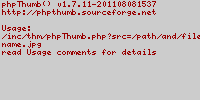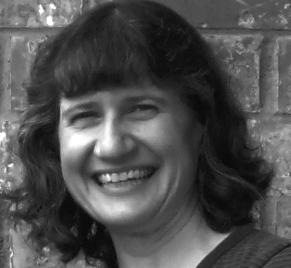On Writing Groups and Muddling Through
Kristin Noblin
 Last summer, my husband’s friend posted on Facebook: “Are there any serious writers in Seattle who are interested in a writers group?” My husband replied that I was, and then he asked me what I thought.
Last summer, my husband’s friend posted on Facebook: “Are there any serious writers in Seattle who are interested in a writers group?” My husband replied that I was, and then he asked me what I thought.
He was right. I was interested. I was still working a couple of part-time jobs, and I was considering pursuing my M.F.A. The thing about these writing programs though is that they require a writing portfolio and I hadn’t done any significant poetry writing since 2007. Writing is a lot like exercise: once you stop, it’s really hard to get started again, and it’s easier to do if you have a buddy.
Writing Groups of All Shapes and Sizes
As a writing major and an English teacher, I have a long history with writing groups. I learned how to give and receive critique from my high school English teachers who both modeled effective critique and created workshop space for us to interact with each other’s work. It wasn’t until I began teaching that I realized how rare those creative writing classes are in high school, and I have yet to work at a school that offers that same opportunity. By the time I graduated from college, I had come to depend on feedback from my community on my writing, and I found it harder and harder to come by. My teacher friends didn’t often offer the same depth of critique—perhaps because it was simply relief to be reading something beyond the average eighth grade poem—so when I came upon my first writing group in Portland, I felt relieved to know that my writing was once again in good hands, with people that would neither praise it excessively or tear it down needlessly. I found this particular group through my church: it was small, met biweekly, and while we each had different poetic styles, we were able to provide solid feedback to each other. Either that, or we just said, “Dude, I’m not sure what to tell you. This is beyond me.” Being in a small group gave us space to focus ample time to each piece on those rainy winter evenings.
That group broke up about six months after I joined it as people moved and life happened. About a year later, I was asked to become part of the leadership team for a larger writing group, and I found that to be much less effective. We only met monthly, so I frequently found myself either throwing something together before rushing out the door (a great leadership model to be sure) or not bringing anything because I knew there was no way we would get to everyone. While I received some good feedback on the few pieces I did bring, I was exhausted, leading in too many areas of my life that year. I was not sad to step down.
Despite the overwhelming sense of relief after leaving the leadership team, I effectively stopped writing poetry a few months afterwards. It seems I am not as self-motivated as I would like to think I am. So when this opportunity opened to join a new group in Seattle, I jumped on it despite knowing no one in the group. I have found it’s often best if the people in the group form their relationships around the writing; it’s easier to stay on topic that way, and it’s easier to be honest—both in your writing and in your feedback.
Since those initial summer conversations, we have met a handful of times. We are still figuring out our rhythm: how often to meet, how to prevent procrastination, what size is best. Perhaps most significantly, we are working through how to give feedback on significantly different kinds of writing. Out of the four women, each of us is working within a different genre, and I find myself a little disoriented jumping from one genre to the next, in and out of my expertise. Yet there comes a point when good writing is good writing, and it’s something you recognize in prose or poetry.
Muddling Through (Or Um, What Now?)
However, it is hard to be an active member of a writing group when I am not producing much new poetry. I’m out of practice; I’m not seeing or hearing things like I used to. Last week, I had about two hours to write a poem for the upcoming meeting. Nothing happened. I read some poetry. Nothing. I found some of my old work. Nothing. I finally decided to take the old work to the new group since they hadn’t read it before in hopes that it would spark new ideas and ultimately new poems. So far, nothing. The issue is not so much getting back into writing. Those of you who read my personal blog know that I participated in National Blog Posting Month in November where the challenge was to post every day for thirty days. This commitment catapulted me back into writing regularly; it’s the best thing I’ve done for myself in some time, but the poetry remains stagnant.
Right now, I am waiting. While I am still planning on pursuing my M.F.A. after my husband completes his graduate program, I am not sure where I’m at as a writer right now. And I believe that’s okay. There’s something to be said for the discipline of writing, for surrounding yourself with good art and thoughtful people, for giving yourself deadlines so you actually produce work instead of just telling strangers over appetizers and small talk that you’re a writer. Yet it’s not instant, there’s no formula, and you must learn to listen well—even when the silence uncovers more questions (like which genre to pursue and when). In the end, the process will yield the art, and right now I am trusting the journey.
***
Kristin Mulhern Noblin is a veteran English teacher who enjoys good coffee, watching football, and using her red KitchenAid mixer. She lives in Seattle, Washington, with her husband and looks forward to the day they will have a dog. When not wrangling middle school students, she is busy standing for truth, beauty, freedom, and love.




 Thanks to Michelle and the great people over at
Thanks to Michelle and the great people over at 


